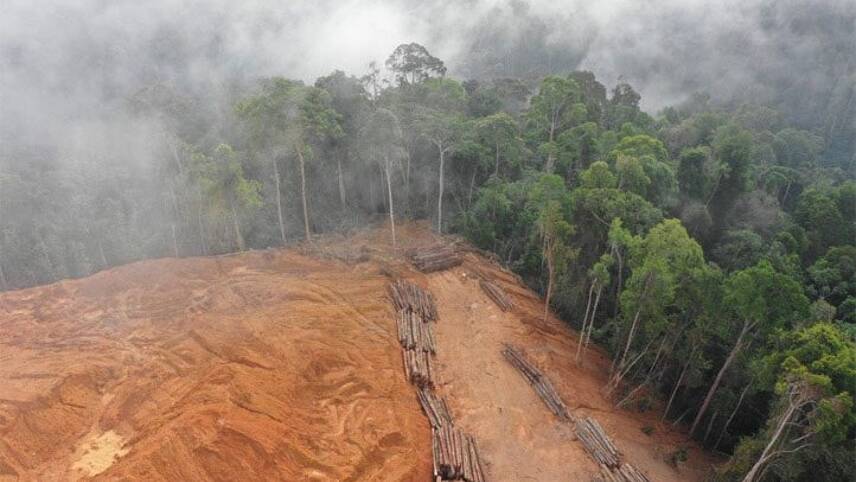Register for free and continue reading
Join our growing army of changemakers and get unlimited access to our premium content

The UN estimates that food and drink production alone has been the driver of 75% of deforestation by area size to date
That is according to a major new report from WWF today (5 July), entitled ‘Thriving Within our Planetary Means’.
The report reiterates that the UK has missed previous domestic targets and is off-track to meet future goals relating to several key environmental focus areas, including land degradation and use change, air pollution and greenhouse gas (GHG) emissions.
It then outlines how the UK Government is not properly calculating the nation’s global impact; while domestic target-setting and progress have been strong in some areas, the same cannot be said of targets relating to imported goods and services and international transportation. Nearly half of the UK’s carbon footprint “occurs beyond its borders”, the report states.
When domestic and overseas impacts are accounted for, WWF claims, the UK’s GHG footprint, on a per-capita basis, is six times the planetary limit. There is also a warning that the UK’s biomass footprint, on a per-capita basis, is twice the planetary limit. This finding comes just days after a coalition of major nature charities, with two million members collectively, urged the UK Government to cease subsidies for imported biomass burning for electricity generation.
“If the UK is to stand as a global green leader at the COP26 climate summit, we must pull our weight in addressing the planetary crisis and ensure all commitments meet the scale of the challenge,” WWF’s chief executive Tanya Steele said. “Adding a legally binding target to the Environment Bill to slash our environmental footprint at home and overseas by 2030 is an essential step, and this report provides a roadmap to deliver on that target once it’s in place.”
Next steps
The ‘roadmap’ detailed in the report recommends several legally binding targets between 2023 and 2030.
One of the earliest targets recommended is legislation to ensure that international supply chains of forest and agricultural commodities are responsible for zero deforestation and zero land-use conversion by 2023. The Department for Food, the Environment and Rural Affairs (Defra) recently introduced new “comply or explain” rules for corporates importing materials linked to deforestation, but green groups and businesses have argued that loopholes remain. For example, the rule only applies to illegal deforestation, and some countries have lax rules on what is legal or not. Moreover, the financing activities of banks, investors and insurers are not covered.
WWF’s roadmap also includes a recommendation to cut the footprint of the UK’s material consumption by 40% by 2030; with a higher, 50% target for biomass. Additionally floated is a target for 100% sustainably sources marine resources – domestic and imported – by 2030.
To help deliver these top-line targets, WWF recommends a due diligence obligation on businesses with related supply chains, and on the finance sector, to mandate the assessment of nature risks across the value chain. It also floats a core set of food standards that apply to imports as well as domestic production, following concerns that the recent UK-Australia trade deal could see domestic standards undercut.
WWF states that it has the support of the Environmental Audit Committee (EAC) for these moves. The publication of the report comes as the Environment Bill passes through the House of Lords.
Join the conversation: edie’s Earth Overshoot Day webinar is on 29 July
Readers interested in exploring how businesses can contribute to the transition to a “one-planet-compatible” economic system are encouraged to register for edie’s next free webinar, being held to mark Earth Overshoot Day on Thursday 29 July.
This one-hour edie webinar, hosted in association with Centrica Business Solutions, will ask what one-planet-compatible business models look like and how can businesses collaborate, innovate and actuate to achieve them; How the Covid-19 pandemic affected the decoupling of economic growth from negative environmental impact over the past year; And what work must be done to make all sectors – even those which are the most ecologically impactful – one-planet compatible for good.
Click here to register for the webinar.
Sarah George


Please login or Register to leave a comment.